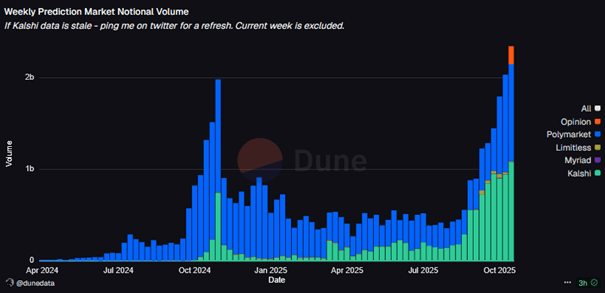France, Japan, America: The big countries are in debt massively, and nobody is forcing them to restrain themselves

How long can the leading industrialized nations afford their horrendous budget deficits? The International Monetary Fund is calling on them, not for the first time, to correct course.

Telmo Pinto / Sopa / Light Rocket / Getty
There was a time when the International Monetary Fund (IMF) was primarily concerned about developing and emerging countries like Argentina and Pakistan. But now the G7 countries are also attracting attention with their high and rising national debt.
NZZ.ch requires JavaScript for important functions. Your browser or ad blocker is currently preventing this.
Please adjust the settings.
France's credit rating was downgraded on Saturday by the rating agency Standard & Poor's. The reason: "increased uncertainty" regarding the national budget. That's putting it relatively mildly. France is expected to record a deficit of over 5 percent of GDP in 2025. Improvement is not in sight; on the contrary: Street protests and a political blockade by the left and the nationalist right forced the centrist minority government to postpone the long-announced increase in the retirement age from 62 to 64.
The financial markets have responded to the uncertainty by selling long-term French government bonds. Because bond yields, and thus the cost of debt, are rising, this is causing the budget deficit to swell further. The only consolation for the French: they are not alone with their budget problems. In Japan, yields on 30-year government bonds have also risen sharply over the past three years.
However, the higher interest costs have not led to more savings in Tokyo either. On the contrary: Sanae Takaichi, the designated prime minister, wants to pursue an even more expansionary fiscal policy, even though the country's gross debt ratio , according to the IMF, is at a staggering 230 percent of GDP.
The United Kingdom, Italy, and—to a lesser extent—Canada are also struggling with high levels of debt, as is the United States. A budget bill passed by the Republican-controlled Congress in early summer will further exacerbate this problem, according to outside experts such as those at the Peter G. Peterson Foundation .
The IMF weighs upThis seems alarming, especially since the global economy is currently in decent shape. How will the debt levels of rich countries develop when the next crisis hits the world?
The IMF takes a nuanced position on these issues in its "Fiscal Monitor." In its widely observed debt assessment, it continues to assign only a "low" risk to five of the seven G7 countries. Only Japan and Italy (debt level: 134 percent) are considered to be at "medium" risk. This is unsatisfactory for numerous emerging markets: Most of them have significantly lower government debt ratios, yet many are assigned a medium or even high risk.

Vítor Gaspar, head of the Fiscal Policy Department at the IMF, argues that the debt ratio alone is not sufficient to assess a country's vulnerability to a debt crisis. "While large countries like the US, China, the UK, and France are pushing up the global debt ratio, these countries also have greater options to bring their deficits and debt under control."
These include liquid and large capital markets, a diversified investor base, and strong tax capacity—that is, the ability to generate additional tax revenue if necessary. In China's case, this is complemented by a very high savings rate among the population.
The population simply does not wantBut of course, it's not enough if governments are capable of reducing their budget deficits but don't do so for fear of protests. Vítor Gaspar speaks of a trilemma—that is, three incompatible goals that governments want to fulfill simultaneously: First, spending pressure has increased—in many places, for example, defense spending needs to be increased and the country needs to be prepared for demographic change and climate change. Higher interest rates also lead to increased debt service expenditures, which must be covered from the national budget.
Second, it is important to keep the deficit and debt under control to avert risks to the sustainability of public finances and financial stability. Third, however, tax increases or austerity measures are usually very unpopular, especially since people today seem less willing to tighten budgets.
To resolve the trilemma, Gaspar proposes introducing growth-promoting measures. "Even more important is to build trust—in the markets, but especially among the population." But a government must first earn this trust.
"Transparency in tax matters helps when the population knows what the money is being used for," says Gaspar. Furthermore, the government should provide its services as effectively as possible and needs a framework so that it can regularly account for how it manages the national budget. "But even if these principles are universally applicable, their implementation must be consistent with the political system, which varies greatly from country to country."
External pressure—such as that currently exerted by the markets through elevated long-term bond yields—of course helps to force governments to act. But it is not enough. Gaspar points to Alexandre Lamfalussy, who warned in the 1989 Delors Report that market discipline acts too slowly and too weakly in normal times, but too quickly and disruptively in times of crisis.
"You can never take financial stability for granted; you have to work on it continuously," says Gaspar. It's difficult to predict where the next crisis will arise. "This makes it all the more important that governments build a fiscal buffer. Our research has shown that governments with such a buffer can reduce the impact of a crisis on economic growth and employment and emerge from it more quickly."
Fiscal dominance threatensA particular risk is that high government debt also impacts monetary policy. In Japan, the central bank has been purchasing a significant portion of government debt for years. The Bank of Japan has gotten away with this very expansionary monetary policy, partly because inflation was very low. However, inflation has recently risen in the country. The Bank of Japan has reduced its bond purchases, which could put it on a collision course with the new government.
In the EU, there is also a risk that the ECB will use bond purchases to shield highly indebted countries from market pressure, thereby interfering in these countries' domestic politics. When the ECB bought Italian government bonds on a large scale in the summer of 2022 and capped the country's bond yields, it intervened in the ongoing election campaign because solving Italy's debt problem suddenly seemed less urgent.
International experts are keeping a close eye on whether the ECB will also help France out of its predicament. Such interventions temporarily numb the dispute between the EU's fiscal policy model students and the deficit sinners. In a crisis, however, this dispute can flare up all the more sharply later on, putting the Union under strain once again – as it did during the euro crisis beginning in 2010.
In the US, President Donald Trump has been exerting enormous pressure on the Fed for months to drastically cut interest rates. Trump hopes this will reduce his spending on debt service, which consumed more than 23 percent of revenue in fiscal year 2025.
So far, the Fed has withstood his pressure. But the Supreme Court will soon decide whether Trump can fire Fed Governor Lisa Cook. If the Supreme Court sides with Trump, he can nominate Cook's successor and put a governor in office who might be more compliant with his wishes.
The financial markets could come to believe that the central bank will be effectively controlled from the Oval Office in the future. They would raise their inflation expectations and demand a higher risk premium for long-term US government bonds. This, in turn, would make debt service more expensive; and Trump would have achieved the opposite of his intended goal.
"Central banks are not independent for their own sake. They enjoy operational independence so they can fulfill their mandate," says Vítor Gaspar. "Models and historical evidence show that this institutional arrangement works well." In exceptional times like the COVID-19 pandemic, finance ministries and central banks should have worked in tandem. "But in normal times, it is extremely important to insulate monetary policy from fiscal considerations."
nzz.ch





